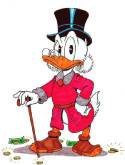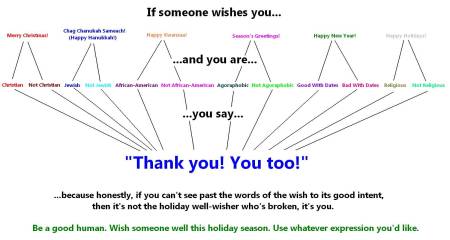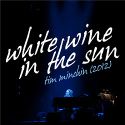This entry is part of a series. For a listing of all entries in the series, go to the Index. Unless otherwise noted, all Bible quotations are from the New Revised Standard Version (NRSV). All headings are links to those Bible chapters.
 Chapters 11 through 20 of Job continue on in much the same vein as chapters 3 through 10. Job continues to lament his position, while his friends continue to offer different perspectives.
Chapters 11 through 20 of Job continue on in much the same vein as chapters 3 through 10. Job continues to lament his position, while his friends continue to offer different perspectives.
Job, Chapter 11
This is the first chance for Zophar to respond to Job. He's the least sympathetic of Job's friends, implying that Job really must be guilty of something that none of them know about, "Know then that God exacts of you less than your guilt deserves." Other than that, Zophar's message is similar to previous ones - be faithful to God, and he will set things right.
Job, Chapter 12
Chapter 12 begins what is commonly known as the second cycle of speeches. There are three cycles in the book. The cycles all begin with a speech from Job, and then alternate between speeches from his friends and Job's responses to them.
Job gets a little more explicit in his criticism of God in this speech. It's almost a lament that we are all at the mercy of God, no matter what he decides to do, good or bad. Consider verse 14:
If he tears down, no one can rebuild;
if he shuts someone in, no one can open up.
or verses 24 and 25:
He strips understanding from the leaders of the earth,
and makes them wander in a pathless waste.
They grope in the dark without light;
he makes them stagger like a drunkard.
Job also points out that the wicked aren't always punished for their crimes, a theme he'll return to in later chapters.
The tents of robbers are at peace,
and those who provoke God are secure,
who bring their god in their hands.
Job, Chapter 13
Job continues his speech in much the same way. One interesting thing mentioned in the translation notes of the NRSV and the footnotes of the New Oxford Annotated Bible (NOAB) is that the traditional translation of verse 15 is not the best one. For example, the King James Version (KJV) translates it as "Though he slay me, yet will I trust in him...", the New International Version (NIV) has "Though he slay me, yet will I hope in him...", and the New Living Translation (NLT) has "God might kill me, but I have no other hope." The NRSV has a much bleaker translation, "See, he will kill me; I have no hope." This is one of those times when I wish I knew enough to not be at the mercy of the translation of others.
Job, Chapter 14
Chapter 14 is yet more of the same from Job - not bad reading, but not much else for me to write in reviewing it.
Job, Chapter 15
This is Eliphaz's second speech. He chastizes Job for all that he has said against God, pointing out that Job wasn't the first person to ever suffer. He also repeated the theme that God is just. There was one passage that caught my eye, being an atheist. It wasn't the first time 'the godless' were mentioned in this book, but it was a pretty explicit insult against them.
For the company of the godless is barren,
and fire consumes the tents of bribery.
They conceive mischief and bring forth evil
and their heart prepares deceit.
Job, Chapter 16
Job responded to Eliphaz, in much the way he's responded throughout this book. I did particularly like verse 3:
Have windy words no limit?
Or what provokes you that you keep on talking?
There was also a verse where Job was calling on the earth itself to give some justice to Yahweh.
O earth, do not cover my blood;
let my outcry find no resting-place.
Job, Chapter 17
More of the same from Job, so not much more for me to say, other than pointing out another set of verses that I liked.
If I look for Sheol as my house,
if I spread my couch in darkness,
if I say to the Pit, "You are my father",
and to the worm, "My mother", or "My sister",
where then is my hope?
Who will see my hope?
I'll also note that there was a bit more denigration of 'the godless' in this chapter, though not as explicit as in other places:
The upright are appalled at this,
and the innocent stir themselves up against the godless.
Job, Chapter 18
Chapter 18 was Bildad's second speech. There was one part of this that caught my attention, thanks to the footnotes in the NOAB. Verses 13 and 14 state:
By disease their skin is consumed,
the firstborn of Death consumes their limbs.
They are torn from the tent in which they trusted,
and are brought to the king of terrors.
The 'king of terrors', or Death, was apparently the king of the underworld. And like any king, his kingdom would pass on to his 'firstborn'. And, to quote the NOAB, "the terrors are his agents who drag people from life down into his kingdom." This really does seem to be, if not outright polytheism, at least very, very different from the Christian conception of Hell being ruled by an immortal devil Satan (and not 'the Accuser' Satan from the opening chapter of this book).
Job, Chapter 19
This is yet more of the same from Job, but there are a few verses worth pointing out. Verse 20 is the source of a very common saying:
My bones cling to my skin and to my flesh,
and I have escaped by the skin of my teeth.
The NOAB has a rather graphic description of what this verse is supposed to mean, "Escaped by the skin of my teeth, or rather, with the skin of my teeth, means that Job feels he has been flayed alive, his skin being stripped from every part of his body except his teeth, which of course have no skin."
The NOAB also notes that in Verse 25, " For I know that my Redeemer lives, / and that at the last he will stand upon the earth...", that 'Redeemer' should not be capitalized, since God is not going to be Job's champion, as God is the very one causing all of Job's problems.
Job, Chapter 20
This is Zophar's second speech to Job. It's largely of the same theme as all the other speeches from Job's friends, but this time it wasn't just the wicked, but also the godless who were badmouthed. It began with a verse that equated 'godless' with 'wicked':
Do you not know this from of old,
ever since mortals were placed on earth,
that the exulting of the wicked is short,
and the joy of the godless is but for a moment?
And then there was an extended section criticizing the godless, and detailing the fates they can expect, with such lovely sentiments as "they will perish for ever like their own dung", "Their children will seek the favour of the poor" (because as elsewhere in the Bible, children deserve to suffer for the actions of their parents), "They swallow down riches and vomit them up again", etc. This goes on for over 20 verses.
---
Like I wrote last week, the book of Job is actually one of the better books of the Bible I've read so far. To quote that entry, "The poetry is actually pretty good, and there are some moving passages." However, as I feared, it is becoming repetitious. To give an idea of how bad this can be, here's a quick anecdote. I usually do most of my initial reading on my phone, and then follow up later in the NOAB with the footnotes and translation notes. Usually, whenever I start the browser on the phone, it goes right to where I left off, acting as a good bookmark. But sometimes the phone browser will reset and go back a few chapters. This happened last week, and it took me two or three chapters before I was positive that I was re-reading passages I'd already read. That's how similar Job is from chapter to chapter.
New Revised Standard Version Bible, copyright 1989, Division of Christian Education of the National Council of the Churches of Christ in the United States of America. Used by permission. All rights reserved.
 A little while back, I wrote a post called @%^$#!$ Steelers, where I complained about the team's less than stellar performance to start off the season, and resigned myself to expecting them to lose every game from then on out. Well, they couldn't just stay horrible. They had to become just good enough to get my hopes up and then dash them.
A little while back, I wrote a post called @%^$#!$ Steelers, where I complained about the team's less than stellar performance to start off the season, and resigned myself to expecting them to lose every game from then on out. Well, they couldn't just stay horrible. They had to become just good enough to get my hopes up and then dash them.
 I apologize for being late yet again. I've been rather busy at work and cutting my lunches short, and then had a lot going on this past weekend with getting ready for the holidays and doing chores around the house. And then a few blogging opportunities popped up that drew my attention more than this series. I suspect that with Christmas being next week, I won't get up another Bible post until January 3rd or maybe even the 10th. So, I apologize in advance. Anyway...
I apologize for being late yet again. I've been rather busy at work and cutting my lunches short, and then had a lot going on this past weekend with getting ready for the holidays and doing chores around the house. And then a few blogging opportunities popped up that drew my attention more than this series. I suspect that with Christmas being next week, I won't get up another Bible post until January 3rd or maybe even the 10th. So, I apologize in advance. Anyway... I've written about the Salvation Army before, in the appropriately named entry,
I've written about the Salvation Army before, in the appropriately named entry, 


 Christmas is only two weeks away, so it's time to ramp up my efforts in the War on Christmas. To tell the truth, the whole idea of the war is a bit silly, considering all the ways Christmas has been dealt with in this country's past, from the Puritans outlawing it, to some cities treating it "like a nightmarish cross between Halloween and a particularly violent, rowdy Mardi Gras" (see first link below). I've written a few blog entries on Christmas over the years, so I'll just provide links to those below. The first three are especially good for actually being informative.
Christmas is only two weeks away, so it's time to ramp up my efforts in the War on Christmas. To tell the truth, the whole idea of the war is a bit silly, considering all the ways Christmas has been dealt with in this country's past, from the Puritans outlawing it, to some cities treating it "like a nightmarish cross between Halloween and a particularly violent, rowdy Mardi Gras" (see first link below). I've written a few blog entries on Christmas over the years, so I'll just provide links to those below. The first three are especially good for actually being informative. I have a tradition of posting Tim Minchin's song, White Wine in the Sun, every year around Christmas (I'll be posting it shortly this year). As described on Minchin's
I have a tradition of posting Tim Minchin's song, White Wine in the Sun, every year around Christmas (I'll be posting it shortly this year). As described on Minchin's  It's taken me a little longer than I'd hoped to get this done, but here is the second part of my review of the books I read in the last year, just in time to click a link to pick up a Christmas present for the booklover in your life. (More precisely - these are books I read from October 2012 through October 2013).
It's taken me a little longer than I'd hoped to get this done, but here is the second part of my review of the books I read in the last year, just in time to click a link to pick up a Christmas present for the booklover in your life. (More precisely - these are books I read from October 2012 through October 2013).